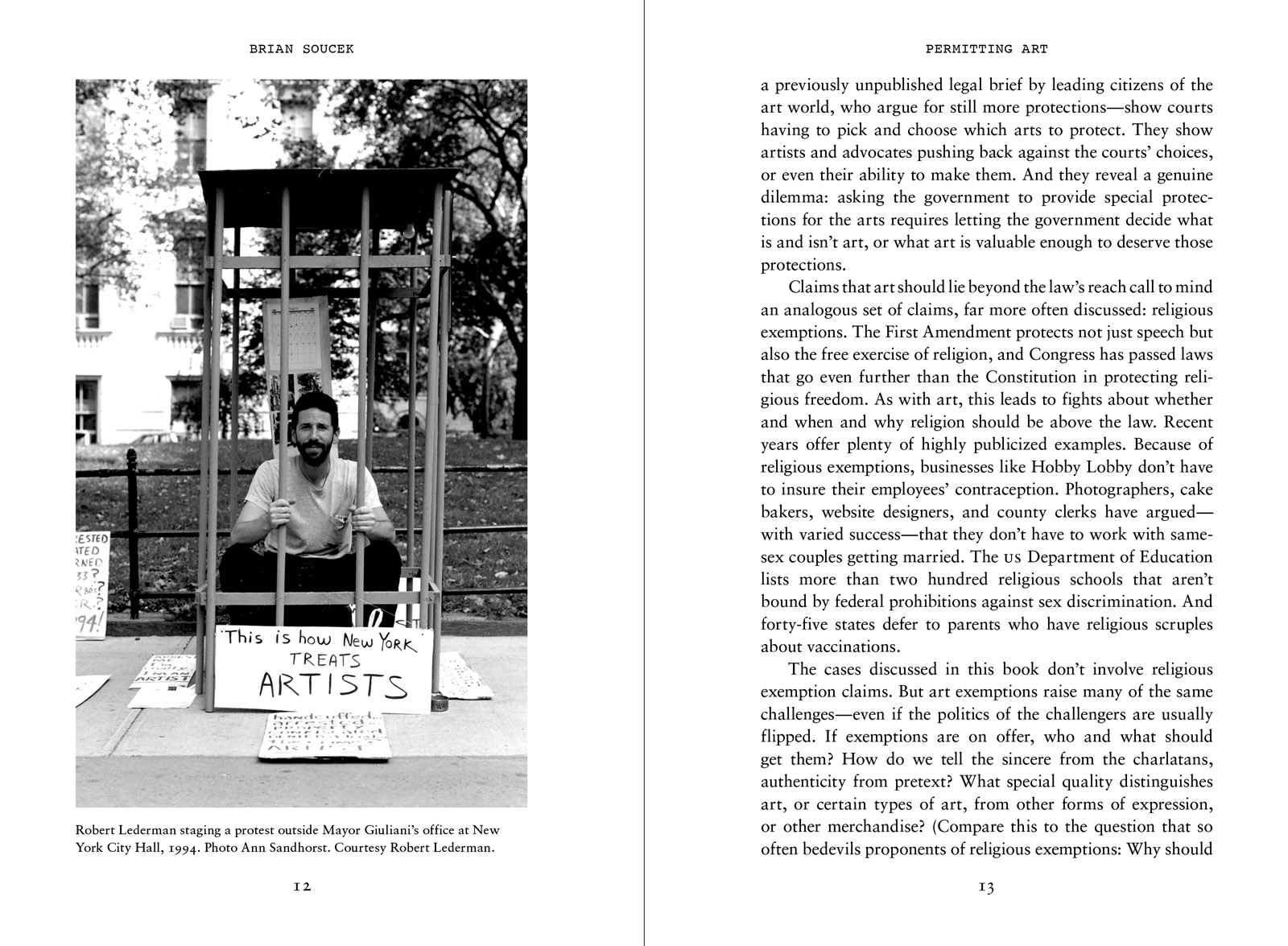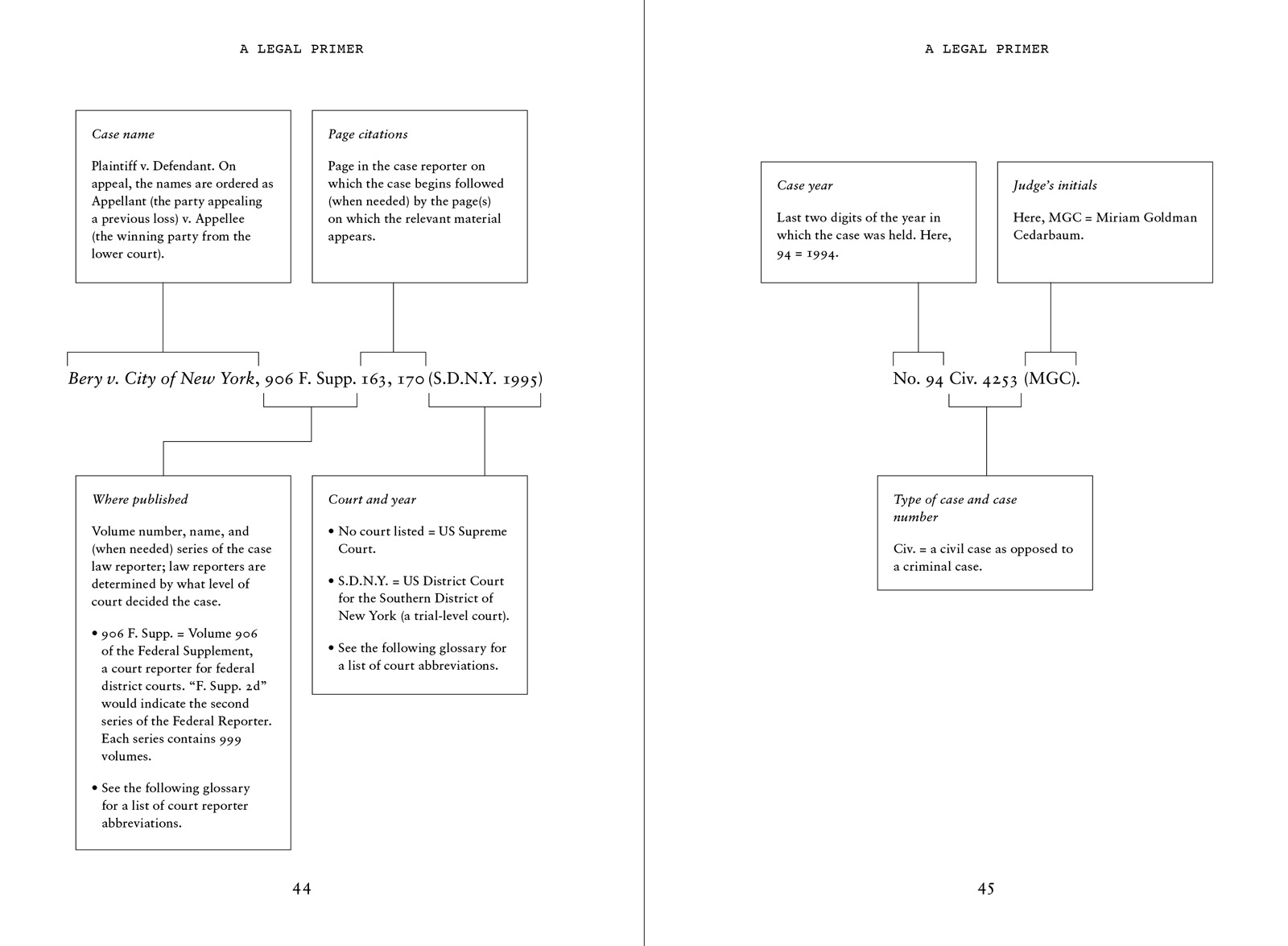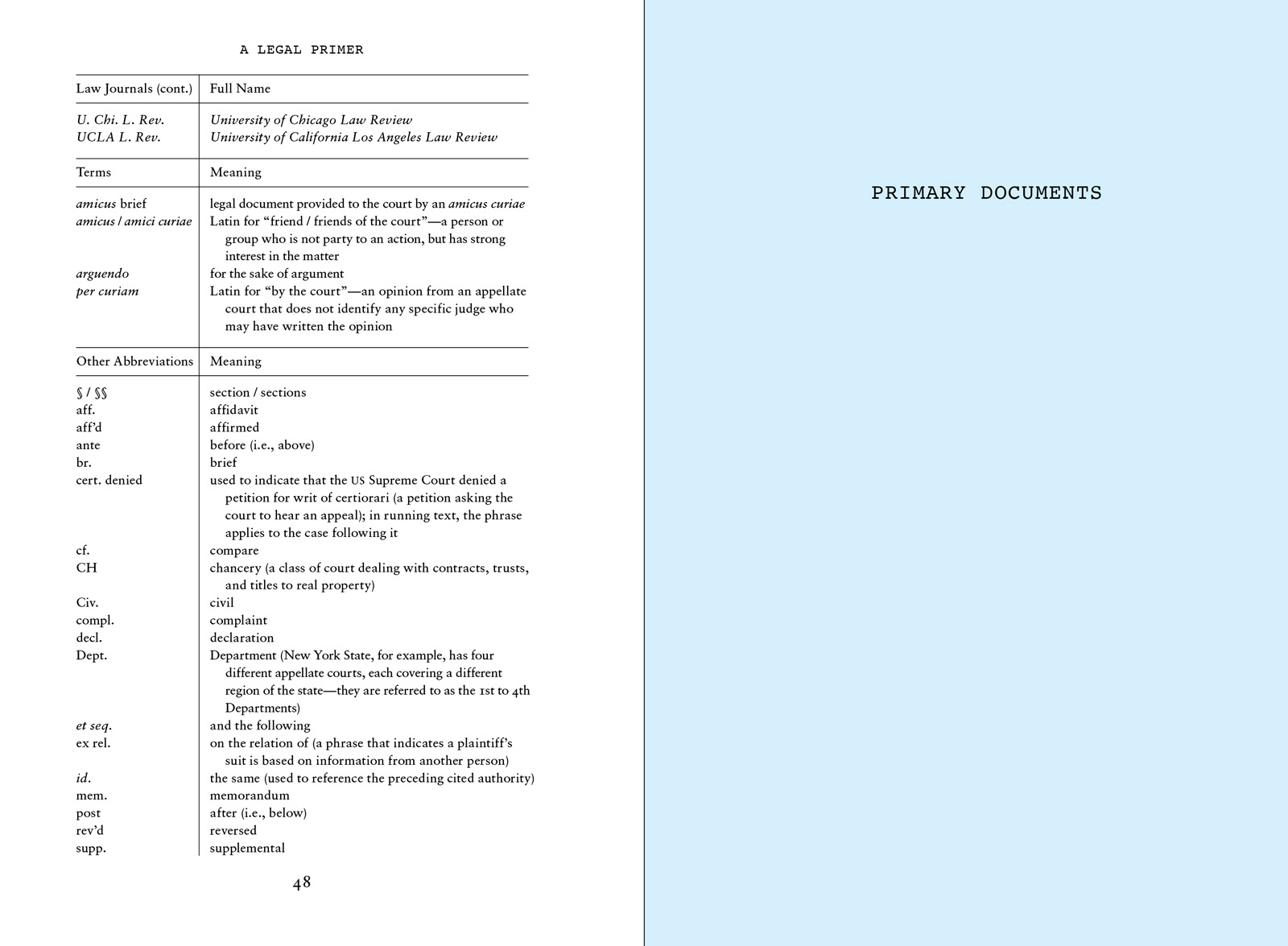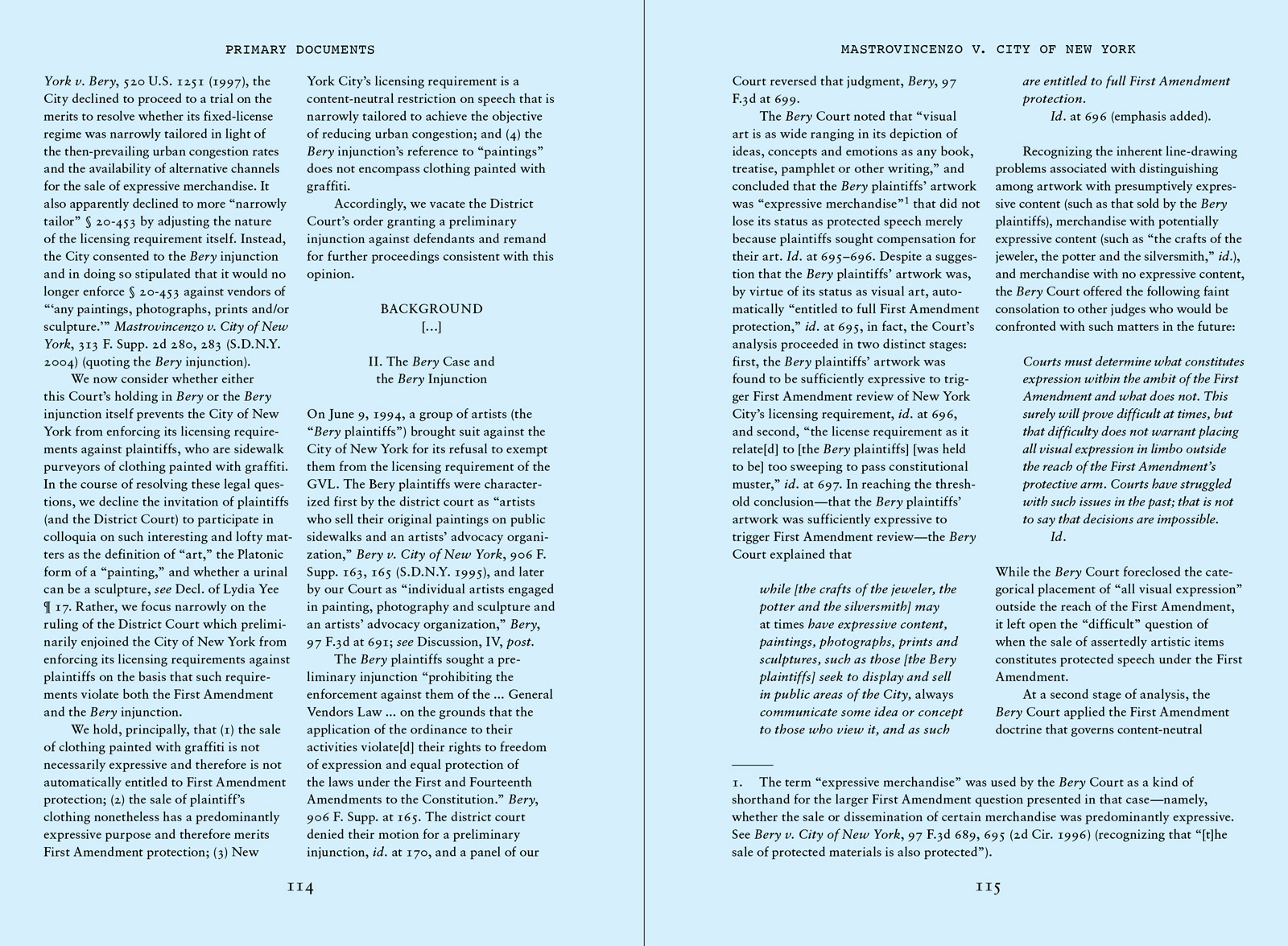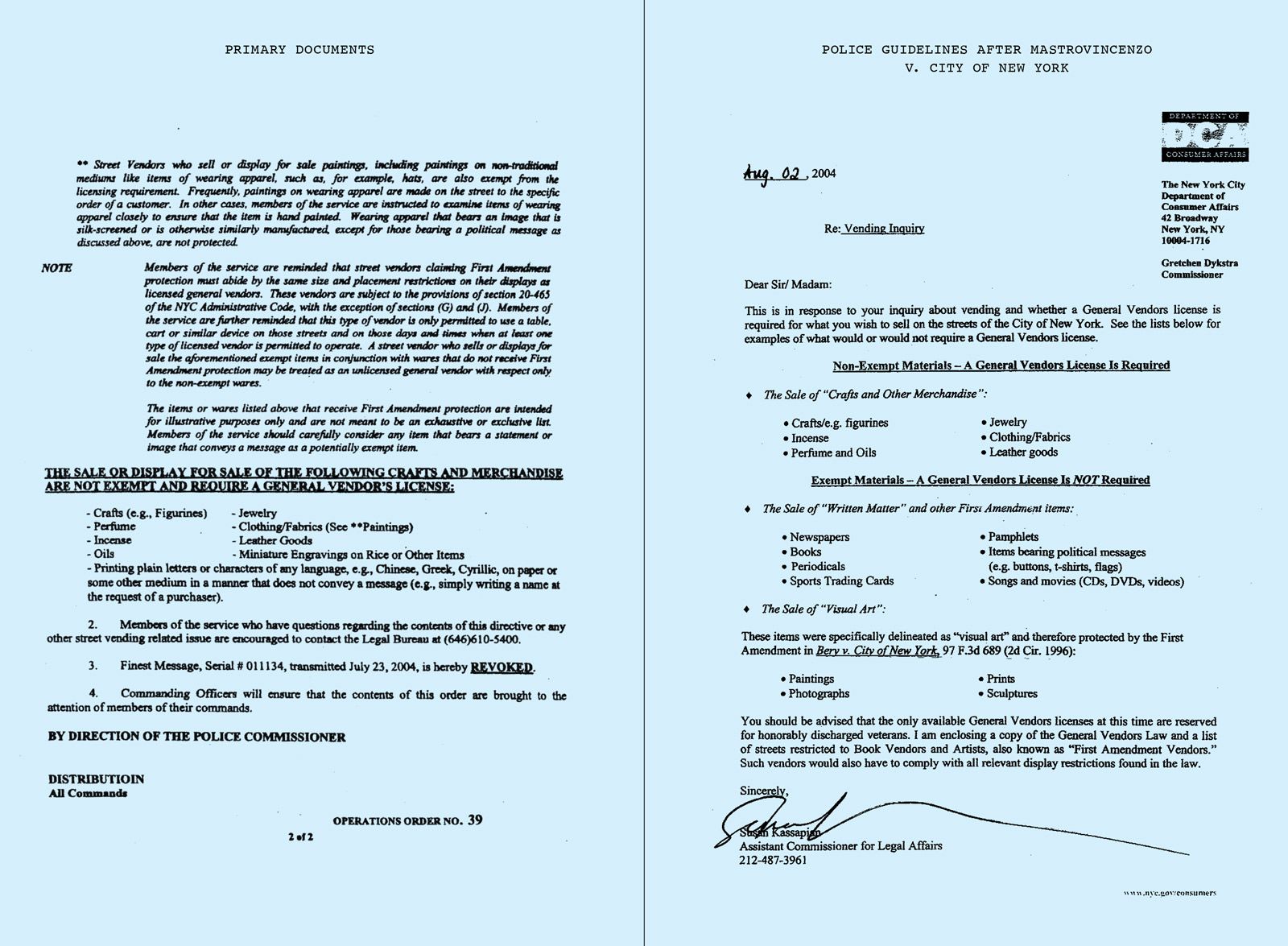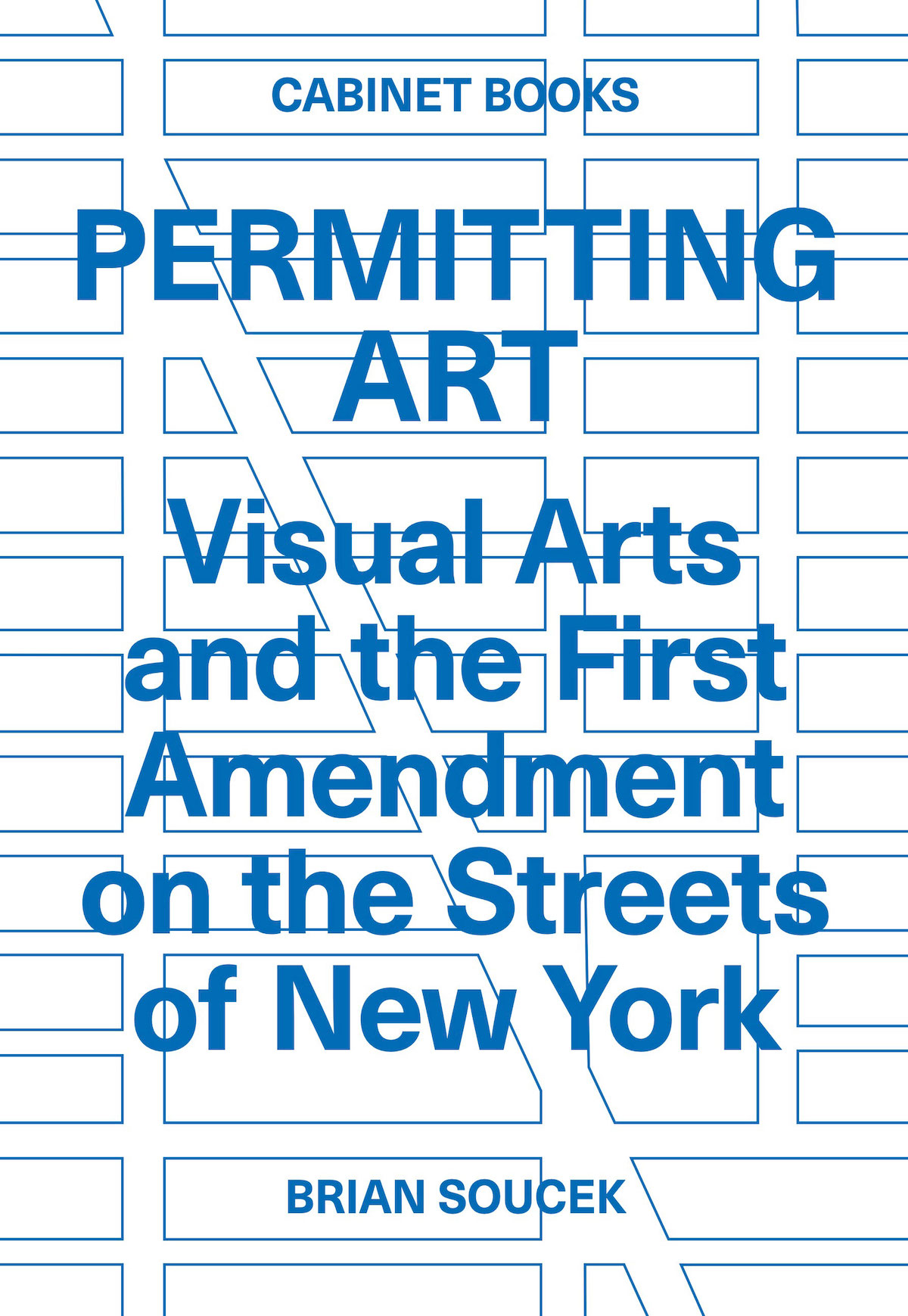
Permitting Art: Visual Arts and the First Amendment on the Streets of New York by Brian Soucek
Softcover, 144 pages, 5.9 (w) × 8.6 (h)
inches
Cabinet Books, 2024
Support independent publishing: $18 directly from us; $16 for subscribers
Join us for our launch events on November 7 and November 9!
If after buying this book, you wanted to then sell it on the streets of New York City, you could do so on almost any block without obtaining a vending license from the authorities. That is because words are protected by the First Amendment of the US Constitution, and freedom of speech is deemed more important than regulating pedestrian congestion, the city’s rationale for requiring vending licenses for almost every form of street commerce.
But until 1995, if you wanted to sell, say, a painting of the cover of this book, you would have been required to obtain a vending license. That was the year in which a group of New York artists who wanted to sell their work on the street filed a federal suit against the city claiming that the visual arts are also a form of speech—and therefore no less protected under the First Amendment than words. Their success led the city to allow sales of paintings, photography, sculpture, and prints on the street. But what qualifies as a painting? A second lawsuit, filed in 2004 by two graffiti artists who had been prevented from selling their painted T-shirts and hats on the street, forced the courts to address this question. Were these artists selling clothing that happened to have art on it, or paintings that happened to be on an unconventional material?
The first volume in Cabinet’s “Art before the Law” series, Permitting Art presents the judges’ opinions in the two landmark cases, as well as an in-depth essay by legal scholar Brian Soucek that guides the reader through the complex arguments mobilized in these encounters between aesthetics and jurisprudence.
About the author
Brian Soucek is professor of law and Chancellor’s Fellow at the University of California, Davis, where he teaches constitutional law, civil procedure, and art law. Before receiving his JD from Yale Law School, Soucek completed a PhD in the philosophy of art at Columbia University and taught at the University of Chicago, where he was co-chair of the Society of Fellows in the Liberal Arts. Soucek’s interdisciplinary work spanning law and aesthetics was cited to the US Supreme Court in the 5Pointz aerosol art case and 303 Creative, the case that determined whether web designers have an expressive exemption from antidiscrimination laws. His articles include “Aesthetic Judgment in Law,” Alabama Law Review, vol. 69, no. 2 (2017); “The Constitutional Irrelevance of Art,” North Carolina Law Review, vol. 99, no. 3 (2021); “Censorship and Subsidy,” in A Companion to Arthur C. Danto (Wiley Blackwell, 2022); “Censorship and Selective Support for the Arts,” in The Oxford Handbook of Ethics and Art (Oxford University Press, 2023); and “Tax Law as Muse,” Cornell Law Review, vol. 110 (2025). He is a recent trustee of the American Society for Aesthetics and a fellow of the University of California’s National Center for Free Speech and Civic Engagement.
About Cabinet’s “Art before the Law” series
The format of this series is simple; each volume will present primary documents from a court case (or several related ones, if relevant) where an important issue in the field of art has been raised, debated, and, crucially, adjudicated during the course of a trial. These documents will be accompanied by a legal primer that will help readers navigate the complex language and protocols of jurisprudence, as well as an in-depth essay that will contextualize the particular artistic and legal entanglements of the case in question.
The goal of the series—which will encompass court cases from various countries across the last hundred and fifty years—is more complicated. As an ensemble, it hopes to make a contribution toward the project of mapping the history of the relationship between law and aesthetic modernity, encounters that have crystallized many of the latter’s defining concerns, including questions of authorship and authenticity, the source of the authority to interpret, the parameters of criticism, and art’s relationship to the public. In presenting in detail the arguments laid out in court, this series will examine the interpretations that were available and acceptable at the time and how these interpretations related to or placed into question the operative assumptions governing both the production and reception of art in modernity.
